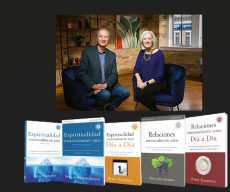The Most Important Question For Every Leader
The word “listen” or “hear” is found more than 1500 times in the Bible. The problem is that it is easy to lead FOR God without listening TO God. That is why the most important question every one of us must ask throughout our days is: “God, how are you coming to me, what might you want to say?” The question then needs to be applied specifically to different areas of our lives. Let me provide you with a few examples of what that looks like in my life: Time with God. “God, how are you coming to me in Scripture and silence today?” At times he leads me to linger over a passage, a phrase, or a text for days – even weeks. At times he leads me to read whole books of Scripture in one sitting. While I practice 20 minutes of silence and stillness each morning, I am also listening to. Read more.






